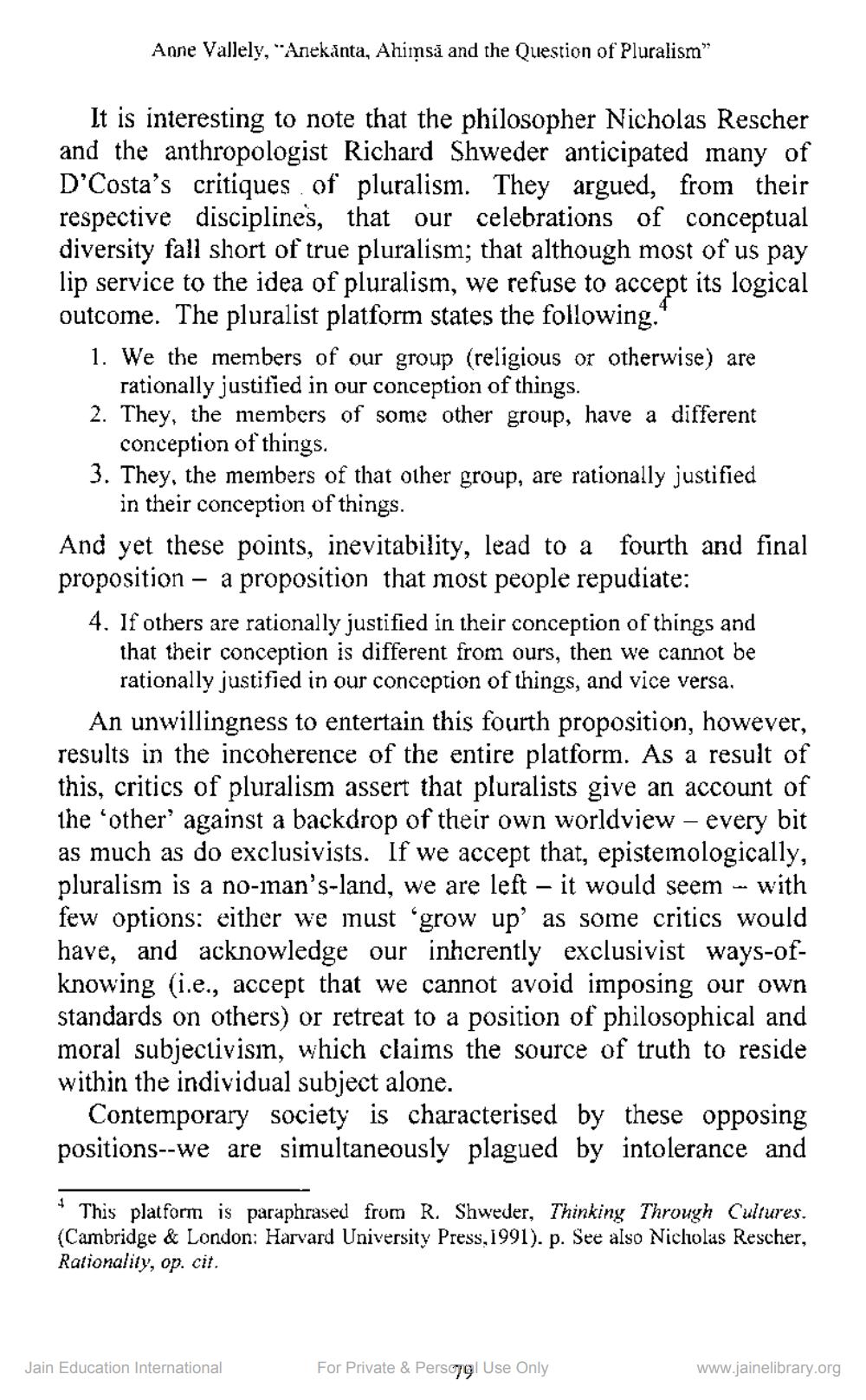Book Title: Anekanta Ahimsa and Question of Pluralism Author(s): Anne Vallely Publisher: Z_Lessons_of_Ahimsa_and_Anekanta_for_Contemporary_Life_014006.pdf View full book textPage 7
________________ Anne Vallely, "Anekanta, Ahimsă and the Question of Pluralism" It is interesting to note that the philosopher Nicholas Rescher and the anthropologist Richard Shweder anticipated many of D'Costa's critiques of pluralism. They argued, from their respective disciplines, that our celebrations of conceptual diversity fall short of true pluralism; that although most of us pay lip service to the idea of pluralism, we refuse to accept its logical outcome. The pluralist platform states the following." 1. We the members of our group (religious or otherwise) are rationally justified in our conception of things. 2. They, the members of some other group, have a different conception of things. 3. They, the members of that other group, are rationally justified in their conception of things. And yet these points, inevitability, lead to a fourth and final proposition - a proposition that most people repudiate: 4. If others are rationally justified in their conception of things and that their conception is different from ours, then we cannot be rationally justified in our conception of things, and vice versa. An unwillingness to entertain this fourth proposition, however, results in the incoherence of the entire platform. As a result of this, critics of pluralism assert that pluralists give an account of the 'other' against a backdrop of their own worldview - every bit as much as do exclusivists. If we accept that, epistemologically, pluralism is a no-man's-land, we are left – it would seem - with few options: either we must 'grow up as some critics would have, and acknowledge our inherently exclusivist ways-ofknowing (i.e., accept that we cannot avoid imposing our own standards on others) or retreat to a position of philosophical and moral subjectivism, which claims the source of truth to reside within the individual subject alone. Contemporary society is characterised by these opposing positions--we are simultaneously plagued by intolerance and * This platform is paraphrased from R. Shweder, Thinking Through Cultures. (Cambridge & London: Harvard University Press, 1991). p. See also Nicholas Rescher, Rationality, op. cit. Jain Education International For Private & Personal Use Only www.jainelibrary.orgPage Navigation
1 ... 5 6 7 8 9 10
